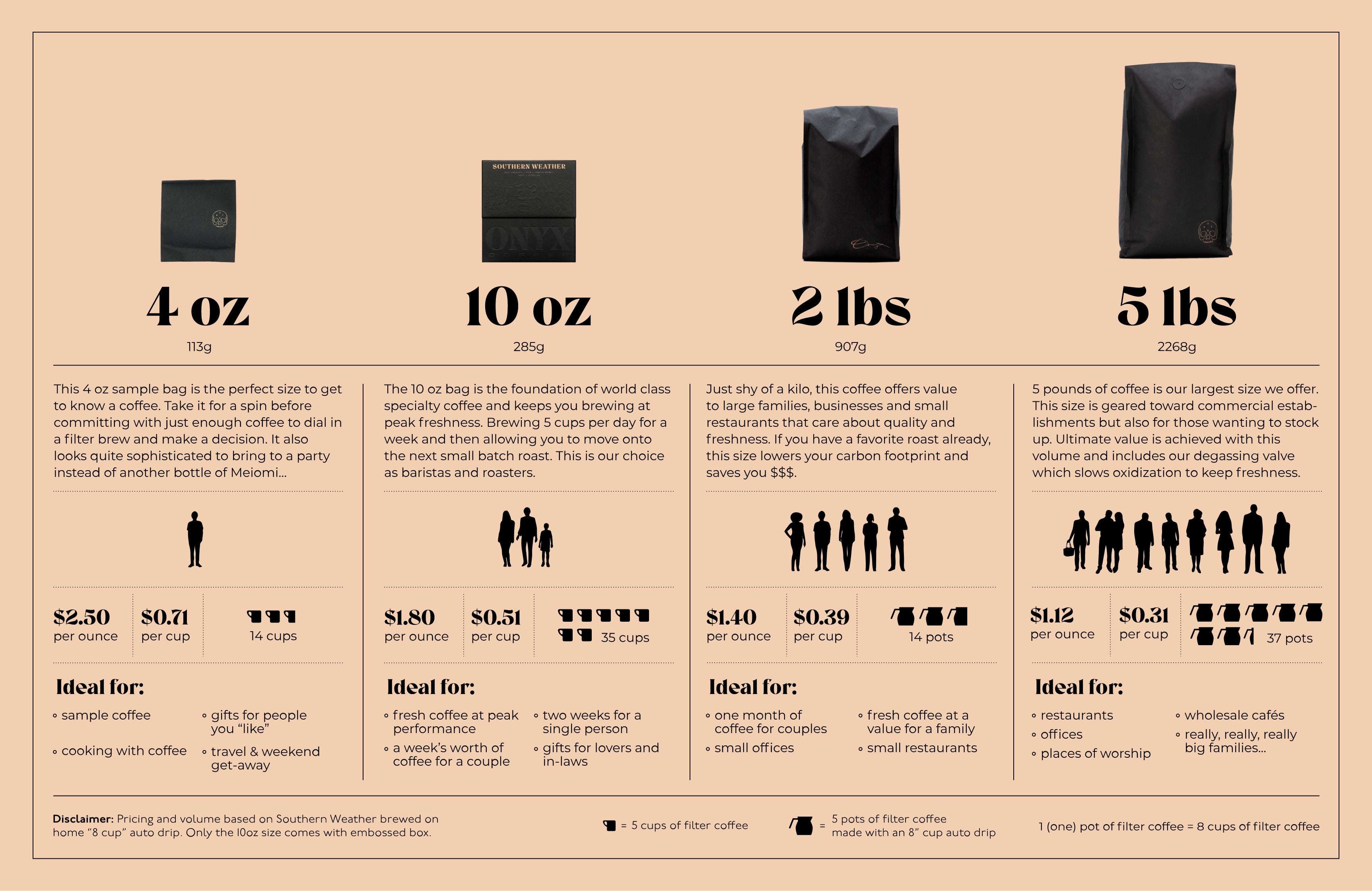Story
This coffee is the product of a marriage of Honduran history and Guatemalan coffee expertise. Twenty-nine years ago, Moises Herrera visited Honduras and met Marysabel Caballero. During his visit, he saw the ideal environment to produce high-quality coffee that Honduras provides. Four years later, Marysabel and Moises married. Over the next few decades, they have produced some of the finest coffee in La Paz, Honduras. They’ve won Cup of Excellence auctions while fetching some of the highest prices per kilo in the auction, all while innovating on a farm level and seeking sustainability. After a devastating bout of leaf rust in 2015, they turned a corner and put sustainability above all else. New techniques were implemented without the compromise of pesticides. They’ve cut down on the density of trees per hectare in order to facilitate airflow and sunlight, cutting down on the fungus and disease that proliferates in the shade. The tension of innovation and tradition is evident in the cup, simultaneously, it is a clean and citrus-laden Honduran classic… but elevated and elegant. With the implementation of African-style raised beds and shade covers, they dry their coffee in a controlled manner, yielding a delicately floral and complex coffee. We are honored to have this microlot and look forward to many more seasons of the Caballero’s coffee.
NATURALLY PROCESSED COFFEE
Natural coffees are beautiful…Okay, natural coffees are beautiful when done properly, but can be equally terrible when things go wrong. Natural processing, or dry processing, refers to the act of drying and fermenting coffee inside the cherry. Long before the age of portafilter tattoos and dual-boiler home espresso machines, coffee was picked and dried this way out of convenience. It is, to this day, still the most convenient and economically friendly way to process coffee cherries. (It’s estimated that dry-processing can use up to 90% less water than the washing process.) So why isn’t all coffee processed this way?
Well, as coffee made its way across the world, it was commoditized and standardized, just like all other products spread by colonialism, but that’s a whole other story... Adding to the boom of washed processing, the natural process method can be tricky to get right, due to the delicate nature of fermentation and drying. What does all this have to do with the final cup? Well, when you leave the skin and fruit of the coffee cherry on the seed throughout fermentation and drying, that fruit begins to break down, imparting esters that influence delicate florals and big fruit notes into the seed that survive the roasting process. If it’s rushed or handled incorrectly, this fruit rot can lend off-flavors to the coffee, making the final cup dirty or ‘fermenty.’ Basically that single cherry begins to slowly decay, and controlling that delicate action through advanced technique and metrics allow us, lucky folks, to drink wonderfully floral and fruity coffees. We have long promoted natural processed coffees, and this Gesha from Honduras is just one of the reasons we do.



